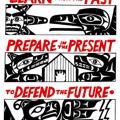Wzmz reviewed American Anarchism by Steve J. Shone
Perhaps the worst, least coherent book that could bear this title
1 star
While reading this book, I weighed a number of possible explanations for the poor quality of the book's argument, evidence, structure, and quality.
Here's what I've got: (1) The author woke up the day before they sat down to write this book and decided to scan over a whole bunch of esoteric and dated books about anarchism and anarchists--mostly by anarchism's critics--and, without any real connection to the subject matter or time to allow it to marinate, this is their resulting book. (2) The author is a straight-up individualist or at least has individualist tendencies, which explains the over-emphasis on marginal figures within the US, like Benjamin Tucker, but also why an entire chapter on Max Stirner (who never even set foot in North America) is included. Additionally, the author's roping-in of a non-anarchist sociologist (William Graham Sumner), social darwinist, and defender of the elite, who gets the last pre-conclusion …
While reading this book, I weighed a number of possible explanations for the poor quality of the book's argument, evidence, structure, and quality.
Here's what I've got: (1) The author woke up the day before they sat down to write this book and decided to scan over a whole bunch of esoteric and dated books about anarchism and anarchists--mostly by anarchism's critics--and, without any real connection to the subject matter or time to allow it to marinate, this is their resulting book. (2) The author is a straight-up individualist or at least has individualist tendencies, which explains the over-emphasis on marginal figures within the US, like Benjamin Tucker, but also why an entire chapter on Max Stirner (who never even set foot in North America) is included. Additionally, the author's roping-in of a non-anarchist sociologist (William Graham Sumner), social darwinist, and defender of the elite, who gets the last pre-conclusion chapter to himself, indicates this predilection. (3) The publisher Haymarket Books--which is an International Socialist Organization (ISO) front-group--actively chose to publish this book--poorly argued, esoterically organized, and individualistic-focused--because it could actively tarnish the reputation of anarchism, which has far surpassed the prestige of their Trotskyist ideology in the 21st century.
I'm not sure which argument makes more sense, although it could be a combination of all of the above. I did learn a few things--the chapter on Haymarket defendant Samuel Fielden was interesting for exploring his Chartist origins in England. I appreciate his inclusion, although he's a lesser figure, to be sure. Lucy Parsons was a nice inclusion, too, although most of her chapter was either dedicated to explaining her husband Albert's role in the Haymarket Affair or a full 10 pages dedicated to repeating the varied musings about Lucy's race and ethnicity (which is a problematic emphasis, I feel, for a radical with such a long radical career). I wouldn't recommend this book to anyone, except perhaps someone interested in individualist anarchism or maybe capital-L Libertarianism, who might somehow get turned-on to more serious anarchists like Kropotkin (who also is included, although having never lived in the US), Galleani, Berkman, etc. Almost any other book about modern day American anarchists--including those from major, corporate presses--is better these days.


